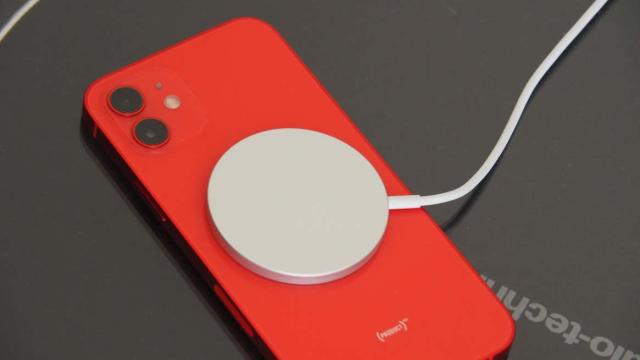Back in January, researchers warned that the iPhone 12 lineup and MagSafe accessories could potentially deactivate implanted medical devices. Now, the American Heart Association has released a study that corroborates these findings on a larger scale, noting that several devices from three major companies were “found to have magnetic susceptibility.”
The initial study published in HeartRhythm was done on a single patient with a Medtronic implantable cardioverter-defibrillator (ICD). It was an important finding in terms of awareness, but raised questions as to whether this would impact ICDs from all device makers if the iPhone 12 lineup posed a greater risk than other magnetized devices, and what the impact on pacemakers might be. The AHA’s study offers a few preliminary insights into what those answers might be.
In the study, researchers observed the impact of an iPhone 12 Pro Max on both ICDs and pacemakers from multiple device makers, as well as conducted both in vivo and ex vivo tests. In vivo refers to tests done on actual patients with an implanted medical device, while the ex vivo tests were done on 11 unboxed devices. The devices tested came from Medtronic, Abbot, and Boston Scientific. (You can see exactly which ICDs and pacemakers were tested in the study itself.)
While ICDs and pacemakers are similar devices, they have slightly different functions. Pacemakers create electrical impulses to help keep your heart beating at a normal rate, and some can also help coordinate the different chambers of the heart. ICDs monitor heart rhythms, and if a dangerous arrhythmia is detected can deliver an electrical shock. They can also record the heart’s electrical patterns and most modern ICDs can also double as a pacemaker.
In 100% of the three in vivo tests, the iPhone 12 Pro Max triggered the devices’ magnet reversion mode. That said, the Boston Scientific pacemaker was found to be less susceptible as it only triggered a temporary response. In ex vivo testing, magnetic interference was detected in 8 out of 11 devices, or 72.7%.
There are a few things to note here. How seriously a device is impacted may depend on the sensors or components used. The study notes that magnetic interference can occur when medical devices are exposed to magnetic fields as little as 10G. According to the researchers, the iPhone 12 Pro Max has a magnetic field strength of over 50G. However, the ex vivo devices tested didn’t respond uniformly. Some were only temporarily disrupted, others had sustained asynchronous pacing, and three weren’t impacted at all. The researchers suggest that in the case of a Boston Scientific Accolade MRI pacemaker, the device may not have been affected because it requires a magnet stronger than 70G.
For the record, Apple hasn’t stuck its head in the sand about this. It issued additional guidance after the HeartRhythm study urging consumers with implanted medical devices to keep iPhone 12 devices more than 6 inches away, or more than 12 inches if wirelessly charging. It also recommended those people consult with both their physician and device manufacturer.
The fact remains the iPhone 12 lineup does contain more magnets than previous iPhones. On its website, Apple says that “they’re not expected to pose a greater risk of magnetic interference to medical devices than prior iPhone models.” However, the AHA researchers say their results suggest otherwise, reiterating that all three in vivo tests triggered a magnet response while a previous study found zero cases among 148 patients with an iPhone 6. This isn’t a reason for panic though. The AHA researchers themselves say their case study has several limitations which include a small sample size and the fact they only tested a few select devices. An even larger scale study would be needed before you could generalise something like “All iPhone 12 models could interfere with implanted devices.”
It’s been well known for a long time that many devices can deactivate or impair ICDs and pacemakers. According to the AHA, that includes radios, certain headphones, smart scales, and even fall detection pendants. More recent studies have shown that Fitbits, Apple Watches, and even vape pens can also cause magnetic interference.
These gadgets, especially smartwatches with advanced heart health features, are only growing in popularity. Wireless charging is only going to become more prevalent and powerful going forward. And frankly, magnets aren’t going anywhere because they’re already in nearly every device you use. This study isn’t a condemnation of MagSafe or other gadgets that have magnetic components. It’s just another reminder that medical device makers may have to update their designs to better fit modern life.
